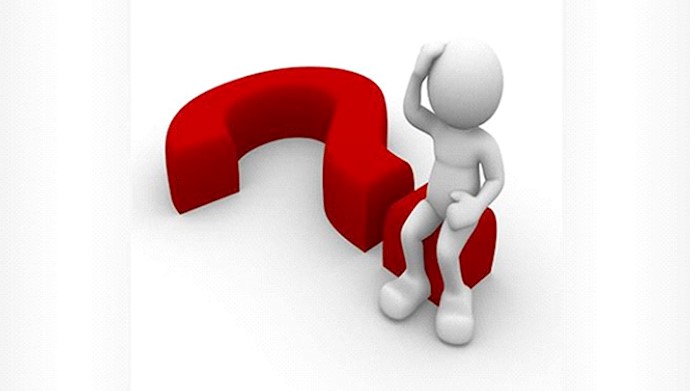Analysis by PMOI/MEK
Dec. 28, 2018 – Warnings about the future of the Iranian regime are abundant among Iranian officials these days, while its state-run talks about the “danger of explosion,” the “poverty pit,” and “competency crisis.”
Arman newspaper, close to the so-called moderate faction of regime president Hassan Rouhani, wrote on December 23: “Currently, only the private-public companies are working. Thus, many job opportunities are destroyed and socially, a powder keg is created that threatens to explode at any moment.”
Public-private (khosulati) has become a distinct word in the Persian language which consists of the beginning of the word private and the end of the public. If it existed in the English language, it would be something like “prilic” or “pubate.” Thanks to the widespread corruption in the so-called privatization process of the formerly publicly owned companies in Iran, the media and opposition figures invented this word combination to better describe the situation.
So, Arman newspaper is essentially saying that the private sector is out of business in Iran, and only the publicly subsidized and assisted companies are still able to function.
Iranian members of parliament also expressed concerns about the economic situation and its eventual security implications.
Mahmoud Damadi, an Iranian MP, said: “The country is unable to manufacture a package of baby diapers… We all know that the economic situation of teachers and blue-collar workers isn’t good, but the government isn’t doing anything about it. What happened to the thousand billion budgets over the past few years that didn’t solve crises like drought, waste, climate change, and illness without giving an answer to the curious minds of today and tomorrow?”
Mohammad Hossein Farhangi, another Iranian MP, described the widespread discontent among Iranians as a “disruption to unity” and warned that a special condition is reigning the country, particularly in the economic field. He also warned Rouhani’s government that stagflation makes cautiousness and economic reforms necessary.
Mohammad Reza Tabesh, from Rouhani’s faction in the Iranian parliament, described the water and environment crises dangerous and said that the water pipeline to Yazd has been destroyed 29 times. The Iranian regime has been diverting water from Isfahan province to neighboring Yazd to fulfill the needs of its own projects and companies run by the Revolutionary Guards. This destructive policy is threatening Isfahan’s agriculture, which accounts for the livelihoods of most farmers. After not having received any response from the government, the farmers of Isfahan have proceeded with rupturing the water pipes on several occasions.
Nasser Mousavi Largani, an MP from the conservative faction, said: “The lies of officials like us have decreased the trust of people in government and the parliament.”
While Iranian media and all three branches of the state are actively pushing their propaganda narrative of combatting corruption on all levels, Ahmad Alirezabeigi, another Iranian MP, raises the issue of Total’s fine in France because of bribery and says: “Why is everything considered classified? Total came and left and what happened? Total’s contract wasn’t transparent. The total was recently fined 500 thousand Euros because of paying a $60 million bribe to win a contract in the South Pars Gas Field. What is going on? The bribing party is condemned in Europe and the U.S., Statoil company is condemned in the Crescent file in Norway, but here in the country the parties who received the bribes aren’t put on trial, punished or revealed.”
Ali Bakhtiari, another MP, said that the Iranian people know the official lies and while addressing the officials said: “Don’t give empty promises anymore.” He closed his remarks by warning: “Be really scared.”
If you study Iranian history before the 1979 revolution, you’ll see very similar warnings by then MPs or officials over the last two years of Shah’s rule. But it didn’t help Shah then as it won’t help the mullahs now.
It isn’t that nobody knows the accumulating problems all over the country, the problem is that the drive and the means to mitigate, reform and improve aren’t available anymore.
The Islamic Republic has already exhausted all its strategic resources. Its base doesn’t buy the mullahs’ propaganda of struggling for the poor and disenfranchised anymore and the sick economy resulting from four decades of mismanagement, blatant corruption, nepotism and kleptocracy can’t handle the rising needs of Iran’s increasingly educated people.
Let’s hope that the Iranian people will sooner rather than later put this dark episode of their history behind and the country and its many riches and ancient culture take their proper position in the world community.





